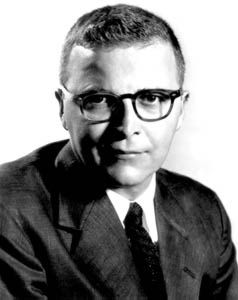The Philco Television Playhouse
| The Philco Television Playhouse | |
|---|---|

Fred Coe, producer of The Philco Television Playhouse
|
|
| Genre | Anthology drama |
| Directed by |
Fred Coe Vincent J. Donehue Gordon Duff Herbert Hirschman Delbert Mann Robert Mulligan Arthur Penn Ira Skutch |
| Composer(s) | Morris Mamorsky |
| Country of origin | United States |
| Original language(s) | English |
| No. of seasons | 7 |
| No. of episodes | 251 |
| Production | |
| Producer(s) | Fred Coe Gordon Duff Ira Skutch |
| Running time | 46–50 minutes |
| Release | |
| Original network | NBC |
| Picture format | Black-and-white |
| Audio format | Monaural |
| Original release | October 3, 1948 – October 2, 1955 |
| Chronology | |
| Related shows |
Goodyear Television Playhouse The Alcoa Hour |
The Philco Television Playhouse is an American television anthology series that was broadcast live on NBC from 1948 to 1955. (The reference book Encyclopedia of Television Shows, 1925 through 2010 lists the program as having been broadcast 1948-1956.) Produced by Fred Coe, the series was sponsored by Philco. It was one of the most respected dramatic shows of the Golden Age of Television, winning a 1954 Peabody Award and receiving eight Emmy nominations between 1951 and 1956.
The first season featured adaptations of popular Broadway plays and musicals. Ronald Wayne Rodman, in his book Tuning in: American Narrative Television Music, noted, "Despite ensuing complications over the legalities of broadcasting copyrighted plays on television and several legal battles that ensued, the show flourished."
The first episode was Dinner at Eight by George S. Kaufman and Edna Ferber. The second season consisted mostly of adaptations of popular novels from the Book of the Month Club. During later seasons, both original stories and adaptations were used. The title of the show was briefly changed to Repertory Theatre and Arena Theatre during part of the first season, but then reverted to The Philco Television Playhouse.
Bert Lytell was the program's host in 1948-1949.
The series launched the television writing careers of Robert Alan Aurthur, Paddy Chayefsky, Sumner Locke Elliott, Horton Foote, Tad Mosel, William Templeton, Arnold Schulman, and Gore Vidal. Its most famous drama was Chayefsky's Marty (May 24, 1953), which starred Rod Steiger and was later made into a movie that won an Academy Award for Ernest Borgnine.
...
Wikipedia
